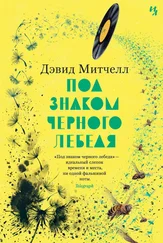The high windows of a bowling alley are propped open.
Dean hears the trundle of balls and the clatter of pins.
A girl walks by, leaving a trail of herself in her slipstream. Dean is entranced by the impossible sight. A tramp, too, leaves a dozen selves in his wake. Haight Street is filled with visual slipstreams.
Dean swivels his arm and a fan of forearms opens up.
‘You ghosting?’ Jerry is at the front of Comet Jerry.
‘Guess I am,’ replies Dean. Ghosting . They cross Stanyan Street and pass under the wrought-iron gate of Golden Gate Park where the colours are doubling, trebling, quadrupling in intensity. Green shrubs glow green, the blue sky sings blue and a band of pink cloud oscillates through all the pinks there are and some there aren’t. ‘Does acid cure you of colour-blindness?’ asks Dean.
‘No,’ says Jerry, ‘but it makes you wonder if you’ve actually been living not in the real world but only a description of it.’
‘Can I have that line? I want to put it in a song.’
‘If you remember it, my friend, it is all yours.’
Fiery maples snap, crackle and pop scarlets and golds into the air. Up they swirl. ‘Bloody bloody bloody hell …’
The three sit on a bench. The long grass around them is wriggling. Really? Dean takes a closer look, and it stops. No, it’s just grass. But when Dean looks away, it reverts to its wriggling ways, only to stop again when Dean focuses his attention. Like a schoolboy waiting till the teacher’s back’s turned. ‘So when we look at a thing,’ says Dean, ‘we change what it is.’
‘Which is exactly why we never see things as they are,’ says Jerry. ‘Only as we are.’ A big dog tows a girl on roller skates.
Where Dean and Jerry walk, Chayton follows. They stop to watch tennis players. The soundtrack is slipping out of sync. The whack of the racquet hitting the ball happens only after impact. As the rally progresses, the players grow bigger. Dean turns to tell Jerry, but Jerry’s head, too, has swollen to twice its normal size, though it deflates again when he exhales. The tennis players’ skin turns first albino-milky, then see-through, like cellophane. Their veins, arteries, muscles and fascia are on full display. A greyhound darts by. Dean sees its bones, its heart, its lungs, its cartilage. A gull, by a bin, is a living, meaty fossil of a gull.
At a burger van, a picture of a cheeseburger is, in fact, not a picture at all, but a real cheeseburger. It drips globules of hot fat. Melting cheese stretches down to the pavement. Ketchup shines like blood at the scene of a fresh accident. The bun is a real, soft, puffy bread bun that breathes in and out and in and out. ‘Your big mistake,’ the bun tells Dean, ‘is to assume your brain generates a bubble of consciousness you call “Me”.’
‘Why is that a mistake?’ Dean asks the talking bun.
‘The truth is that you’re not your own private “I”. You are to consciousness what the flame of a match is to the Milky Way. Your brain only taps into consciousness. You aren’t a broadcaster. You’re a transceiver . ’
‘Bloody hell,’ says Dean. ‘So when we die …’
‘When a match dies does light cease to exist?’
The burger-man in a burger-van is shooing at Dean with his fry-slice: ‘Never Never Land’s thataway , kid.’
Dean looks all the way down the Narrow Road to the Far West and sees Bolívar, the boy he took to the lost kid tent at the festival, in the eye of the setting sun. ‘Hey, Bolívar … are yer real?’
Bolívar’s voice travels down the light-rays. ‘Are you ?’
Where Dean and Jerry walk, Chayton follows.
In the shadows of a bandstand, Dean pees diamonds. They vanish into the earth. Nobody will ever know. He hears a brass band approaching. The last diamond gone for ever, he joins Jerry on the bandstand. ‘Can yer hear the brass band?’
The pink sun is reflected in Jerry’s glasses. ‘I hear the engines of the Earth. It’s a choral roar. What’s the band playing?’
‘I’ll tell yer when I work it out. Here they come …’ Under the spreading chestnut tree, a hundred skeletons march in ragged uniforms that hang off their herky-jerky frames. Their instruments are made of human bones. The melody is the forgotten soundtrack of Creation. If we can only get that down on record , thinks Dean, we’ll alter reality … It’s up to you, Moss … Remember …
Parakeets and herons hang in the dusk, stringlessly.
Dean lifts his thumb and a heron’s wing moves.
Dean puffs a puff of air, and a cloud is pushed along.
Separateness is an illusion , Dean realises . What we do to another, we do to ourselves. ‘How obvious.’ A ghost now asks a ghost-to-be, ‘Who shall I say is calling?’
A small boy brings up the rear in his dressing-gown and slippers. It’s Crispin, Tiffany’s younger son, pointing his index finger at Dean. You’re shagging my mum .
‘These things happen,’ Dean calls back. ‘Yer’ll understand, one day.’
A second finger joins Crispin’s first. They form a gun. He shoots Dean. Bang bang, you’re dead .
Where Dean and Jerry walk, Chayton follows.
‘These are the Polo Fields,’ Jerry tells him, ‘the sacred turf, where Ginsberg led the chanting for the sun moon and stars until the end of time’
Dean wonders if he’s gone deaf; or if Jerry’s voice is gone; or if God the Father has slid the volume fader of the cosmos down. Before any answer emerges, Dean’s groin is gouged open by an axe-blade of hot pain. His knees fold apart and collapse, He drops backwards onto the grassy bank. The agony is beyond anything Dean has ever felt. He cannot scream; or wonder where his jeans or underpants went; or guess how he could have been so utterly wrong about his gender all his life; or worry about the risks of exposing himself in a public park in San Francisco.
Dean wonders, Am I dying?
‘No,’ replies Chayton. ‘The opposite. Look.’
Between his legs, Dean sees the gluey bulge of a fontanelle. I’m giving birth. Dean’s mother is with him, smiling like she does in the photograph on Nan Moss’s piano: ‘Push, Dean … Push, love … One more push!’ With the rip of a root uprooted, Dean’s baby slithers out in a gush of fluids. Dean lies back, gasping and whimpering.
His mother says, ‘It’s a boy,’ and hands him his baby.
Dean’s baby is a tiny, bloodied, vulnerable Dean.
Dean is his own baby, peering up at Harry Moffat.
Eyes shining with love and wonder, Harry Moffat cradles Dean in the crook of his arm. ‘Welcome to the loony-bin, son.’
Dean wakes on a sofa. He smells cold Chinese food, dope and a kitchen bin that needs emptying. Here are books; a long-necked snakeskin banjo that must be something else; a giant candle from a cathedral; a stereo; a stratum of records. Through an arch, he sees the Grateful Dead’s kitchen at 710 Ashbury. A Playboy bunny clock says it’s 7.41 a.m. A perky American DJ is talking about the weather before the opening bars of ‘Look Who It Isn’t’, off Stuff of Life , come on. I love this city , thinks Dean. One day, I’m moving here to live. He feels good. Sane. Stable. Bit sticky … I could do with a bath. He sits up. His body parts are where they should be, and what they were: yesterday’s birth canal was only on loan. The shutters of a large bay window slice bright morning light. I’m Dean Moss, I passed the acid test, and I gave birth to myself. If there’s not a song in that, I’ll eat my Fender. His eyes settle on a battered book entitled The Way of Tarot by Dwight Silverwind. He opens it. Each card has its own page. Dean looks up the Eight of Cups. ‘ The Eight of Cups ’, writes Dwight Silverwind, ‘ is a card of change. The pilgrim is turning away from the viewer – the Now – and embarking on a journey across a narrow channel into arid mountains. Belonging to the Minor Arcana, the Eight of Cups symbolises a turning away from old patterns and behaviours to commence a search for deeper meaning. Note the orderliness of the eight cups “left behind”: our pilgrim is moving on, without fuss and drama. Some authorities associate the Eight of Cups with desertion or abandonment, but to my mind the traveller’s decision is an act of self-emancipation. ’ Dean closes the book.
Читать дальше
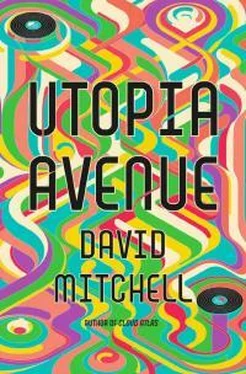

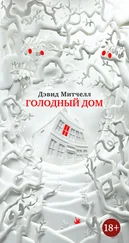
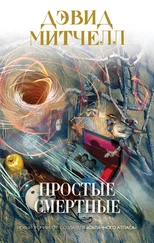

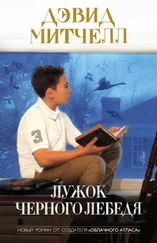
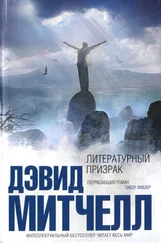
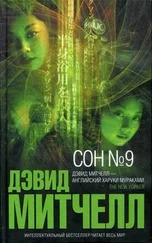
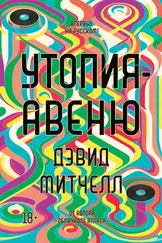
![Дэвид Митчелл - Под знаком черного лебедя [= Лужок черного лебедя]](/books/395644/devid-mitchell-pod-znakom-chernogo-lebedya-luzhok-ch-thumb.webp)
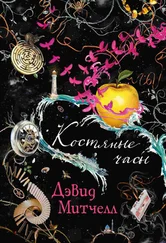
![Дэвид Митчелл - Литературный призрак [litres]](/books/432859/devid-mitchell-literaturnyj-prizrak-litres-thumb.webp)
